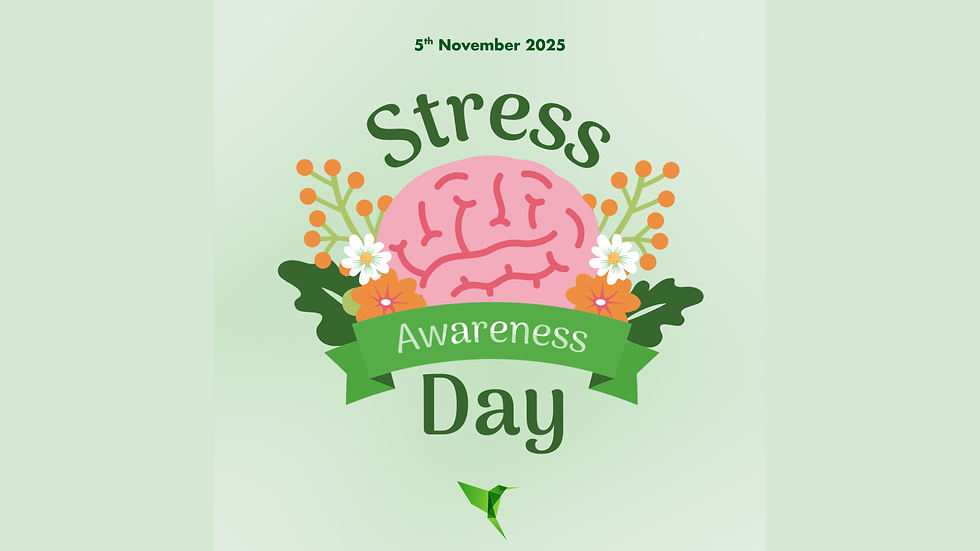Anti-Slavery Week
- Marketing

- Oct 13, 2025
- 3 min read
Standing Against Modern Slavery: Why It Matters for Recruitment & Trades
Modern slavery is not a distant problem. It’s a pervasive, hidden reality that continues to exploit people — even right here in the UK and across global supply chains. During Anti-Slavery Week 2025 (13–19 October), CarmichaelUK reaffirms our commitment to labour integrity, ethical practices, and protecting vulnerable individuals from exploitation.

What is Modern Slavery?
Modern slavery encompasses many forms of exploitation, such as:
Forced labour
Human trafficking / modern slavery in supply chains
Debt bondage
Exploitation of migrant workers
Servitude and coercion
Under the Modern Slavery Act 2015, such practices are illegal, and companies are increasingly expected to show transparency and accountability in how they source labour and manage recruitment.
In the UK, Anti-Slavery Day (18 October) was established through the Anti-Slavery Day Act 2010 to raise awareness about these issues.
Why This Is Particularly Relevant to Engineering, Trades & Labour Recruitment
You might ask: what does modern slavery have to do with recruiting trades workers or placing labourers on construction, maintenance or engineering sites? The answer: everything.
Vulnerability of migrant labour
Many roles in the trades and labour sector rely on migrant or itinerant workers. Language barriers, unfamiliarity with rights, dependence on an employer for housing or transport — these are all red flags that traffickers or exploitative firms can exploit.
Supply chain risk
Even if your immediate workforce is properly contracted, materials and subcontracted services may come from sources that use forced or exploitable labour. A robust recruitment business must be vigilant about indirect risk.
Reputational, legal, and financial exposure
Governments and regulators are increasingly scrutinizing how companies manage their labour supply. In the UK, MPs have warned that the UK risks becoming a “dumping ground” for goods made under exploitative labour conditions unless loopholes are closed.
Moral imperative
At a human level, the engineering, trades, and recruitment sectors have the power to protect those most at risk — and to ensure that dignity, fairness, and respect are non-negotiable in how labour is sourced and deployed.
What CarmichaelUK Is Doing — And Intends To Do
At CarmichaelUK, our mission is not just about matching labour supply and demand — it’s about doing it responsibly. Here’s how we’re embedding anti-slavery principles into our operations and how we plan to strengthen them in 2025 and beyond:
1. Rigorous due diligence & vetting
We conduct thorough assessments of labour providers, subcontractors, and suppliers to ensure compliance with labour laws, contracts, and worker protections.
We require all partners to commit to modern slavery policies and demonstrate proof of adherence.
2. Transparent contracts & worker rights
Employment contracts clearly state pay rates, work conditions, leave, and grievance mechanisms.
We ensure that workers have full agency over their documents (passports, permits) and are free to leave if standards are not met.
3. Training & awareness
We train our internal team and recruitment staff to “spot the signs” of labour exploitation: restricted movement, withheld wages, debt bondage, incomplete contracts, or controlled housing/transport.
We intend to run internal and client-facing awareness sessions during Anti-Slavery Week 2025.
4. Reporting & whistleblowing
We provide safe, confidential channels for workers to report suspected exploitation or breaches.
Any credible report triggers immediate investigation, and we commit to remedial action.
5. Collaboration & community engagement
We will work with industry bodies, NGOs (such as Unseen, Stronger2gether, Slave-Free Alliance), and local authorities to stay updated on risks, share intelligence, and build best practices.
During Anti-Slavery Week, we will publish case studies, educational content, and invite our clients and supply chain partners to join our awareness efforts.
How You Can Take Action During Anti-Slavery Week 2025
We invite our clients, partners, and broader network to stand with us. Here are practical steps you can take in your business or organisation:
Action | Why It Matters | Suggested Initiative |
Spot the signs | Many victims are hidden in plain sight | Distribute guidance (e.g. from Anti-Slavery International: “5 Ways to Fight Slavery”) |
Use training and toolkits | Knowledge builds resilience | Use digital toolkits, webinars, or join forums by Slave-Free Alliance or Hope for Justice |
Stand for Freedom (or other workplace actions) | Raise awareness visibly | Encourage teams to “stand up” for a day, host a talk, or display posters |
Review your recruitment & supply chain processes | Prevent risk before it happens | Audit labour providers, require transparency, and include anti-slavery clauses |
Share and amplify the message | Awareness spreads change | Use social media, internal newsletters, or external communication to bring attention to modern slavery |




Comments